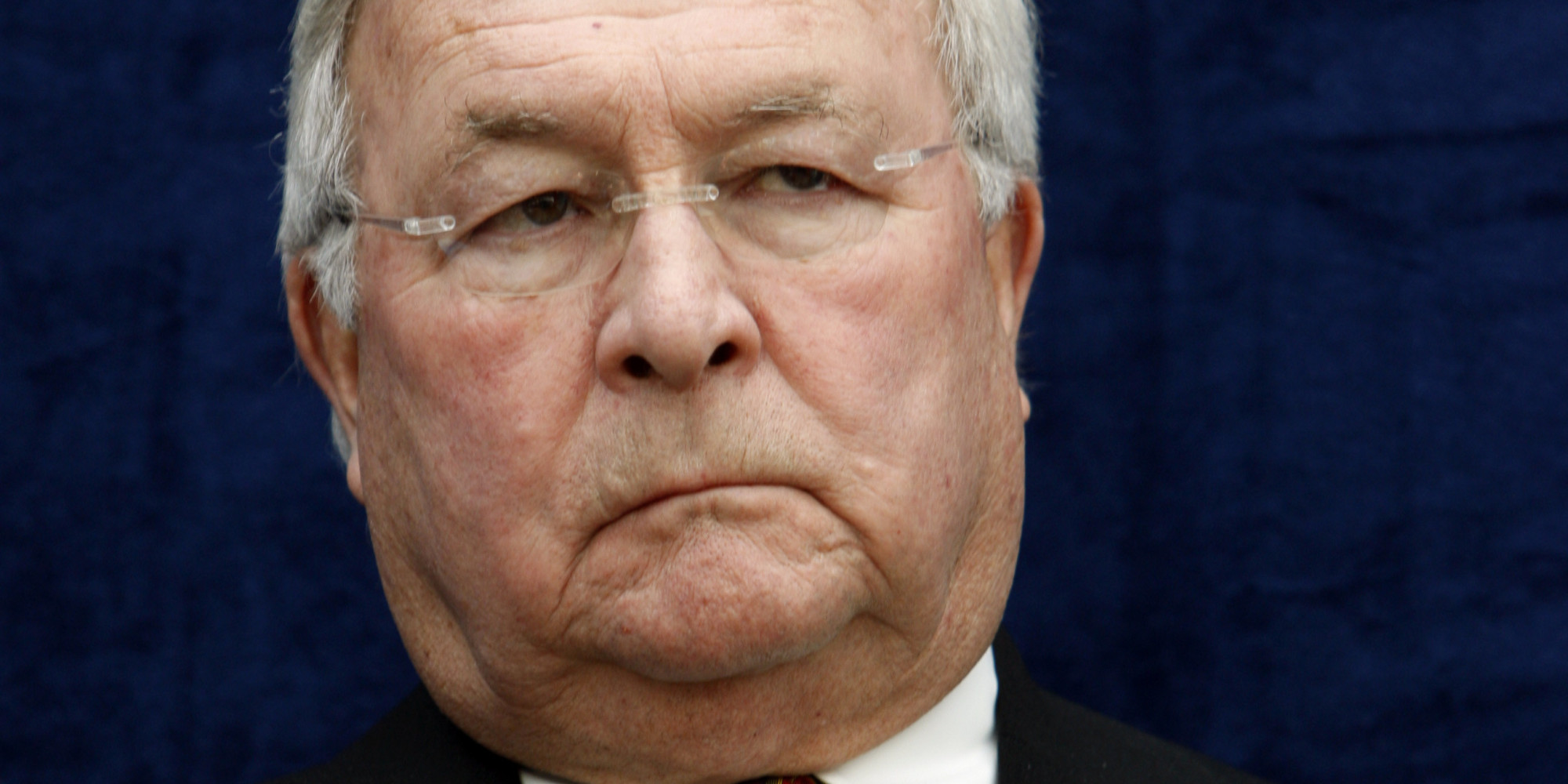Leon Drolet, one of the premier tax fighters in the state, has gone one step further in recent days by campaigning for a “no” vote on the upcoming millage renewal that funds the suburban Detroit bus system, plus advocating an unprecedented transformation of southeast Michigan public transportation that would be led by private ride services such as Uber.
As the founder and director of the Michigan Taxpayer Alliance (MTA), Drolet believes that the time is now for southeast Michigan to give up on traditional bus service in favor of a taxi-style, dial-a-ride network. But if Drolet thought that the leading suburban opponents of an expanded Metro Detroit bus system – Macomb County Executive Mark Hackel and Oakland County Executive L. Brooks Patterson – would join his side in the ongoing public transit debate, he was massively mistaken.

Patterson
While Patterson has loudly opposed additional taxes for an upgraded tri-county transit network, he has also drummed up support for the SMART (Suburban Mobility Authority for Regional Transportation) millage renewal on the Aug. 7 primary ballot. When asked by The Detroit News about Drolet’s wish to wipe out all property taxes for SMART, Patterson offered a snarky response based on the Macomb Township Republican’s time in the state House when Drolet would routinely vote “no” on every tax and spending bill in Lansing.
“Leon Drolet would vote against Christmas if he could,” Patterson said.
Drolet answered on Facebook this morning, offering his view of the inefficiencies of traditional bus routes: “Well, I guess I’d vote against Christmas if Santa forced taxpayers to pay $13,000 for every toy he delivered, was always late, provided lavish pensions for his elves, dropped off presents six blocks from your Christmas tree, and his sleigh was always almost completely empty.”

Drolet
So it goes on the heated path toward the summer primary’s 1-mill renewal of the suburban bus millage, which amounts to the continuation of a $5 to $15 per-month tax on most suburbanites, depending on their home value.
SMART has launched an extensive radio and TV ad campaign to generate support for keeping the tax, which amounts to a major revenue source. In past millage elections, SMART has received widespread support from voters, based on its pitch that its buses serve as a “lifeline” for seniors, the disabled and the poor who rely on public transportation to commute to their jobs.
But Drolet, who has been known to bite off more than he can chew, is convinced that southeast Michigan taxpayers who don’t ride buses can no longer stomach taxes for traditional transportation. On Monday, Drolet’s MTA launched an anti-SMART tax campaign that relies upon mailed literature and campaign robo-calls to voters.
Drolet believes that Uber, Lyft and traditional taxis could replace the old-school, fixed-route large buses that serve the region’s major thoroughfares, such as Gratiot, Woodward and Michigan avenues. The purchase of taxpayer-subsidized vouchers, with users paying 25 percent of the true cost of a ride, could become standard fare. SMART dispatchers accustomed to dealing with buses would instead direct Uber (etc.) drivers to pickup destinations for curb-to-curb service.
The argument put forward by the MTA anti-tax campaign is that expensive costs to maintain buses continue even though a tiny portion of the population uses them.
“Public transportation is a lot like public bathrooms,” said Drolet, a Macomb County commissioner. “People will use them if they have to, but they don’t want to.”
Yet, suburban officials seem eager to dismantle the idea that traditional bus services are out of date. Hackel, who joined Patterson in beating down the prospect of a separate tax to expand public transportation — a plan put forward by the Regional Transit Authority (RTA) — also opposes Drolet’s anti-SMART rhetoric.
John Hertel, former chairman of the Macomb County Board of Commissioners, now the executive director of SMART, suggested that Drolet and his anti-tax group fail to understand the basics of public transportation funding. Hertel told the News that a defeat for the millage renewal would wipe out most of SMART’s budget. Without a monetary contribution at the local level, such as the current property tax, SMART would be blocked from federal gas tax funds, which make up about one-quarter of the bus system’s budget.
The claim that SMART’s budget amounts to $13,000 per rider ignores the fact that bus systems’ costs – ranging from drivers’ wages and benefits to basic bus maintenance and repairs – are based on each trip made by a rider. Those trips for each SMART rider (without a means of transportation) can range from 10 to 20 rides per week.
Meanwhile, Drolet harbors no illusions about the radically transformed public transportation network he is proposing for the Detroit area, one in which buses are replaced by various 21st Century forms of a taxi service, or even autonomous, driverless vehicles.
“In order to rebuild something,” he said, “you have to tear it down first.”










He apparently has an excess of cash. Those rides cost a LOT more than bus fares. Rode the bus for 23 yrs of employment, wasn’t always great, but they did what they could. Got a mailer, emphasizing “empty buses”, lots of times they’re deadheading back to the lot. The last time I rode the Gratiot bus in the middle of the day, I stood up.No community is world class if it doesn’t provide comprehensive transportation. Not everyone should drive, or be obligated to own a car.
This is not a renewal but a tax increase. A vote of NO renews this tax at the present rate for 4 years. The Detroit News refuses to print this so far and instead prints Mr. Hertel’s opinion that it will cripple SMART. This is not based on any facts. Please only vote YES if you want to increase local funding for SMART. I filed a Civil Rights Complaint against SMART and it is illegal to cut any money and telling the public that you must vote YES to get federal money and is open discrimination. The Civil Rights Act of 1964 protects ALL funding. So, they do not exist, unless you abolish the Civil Rights Act and this would take an act of Congress. It is the law to keep all money for SMART despite what anyone thinks or says or does. http://savethefueltax.org
If my site does not go viral, this tax increase will pass despite the shifting away from federal and state money. The car will win, if you don’t fight for federal and state money for SMART and let Mr. Hertel know this.